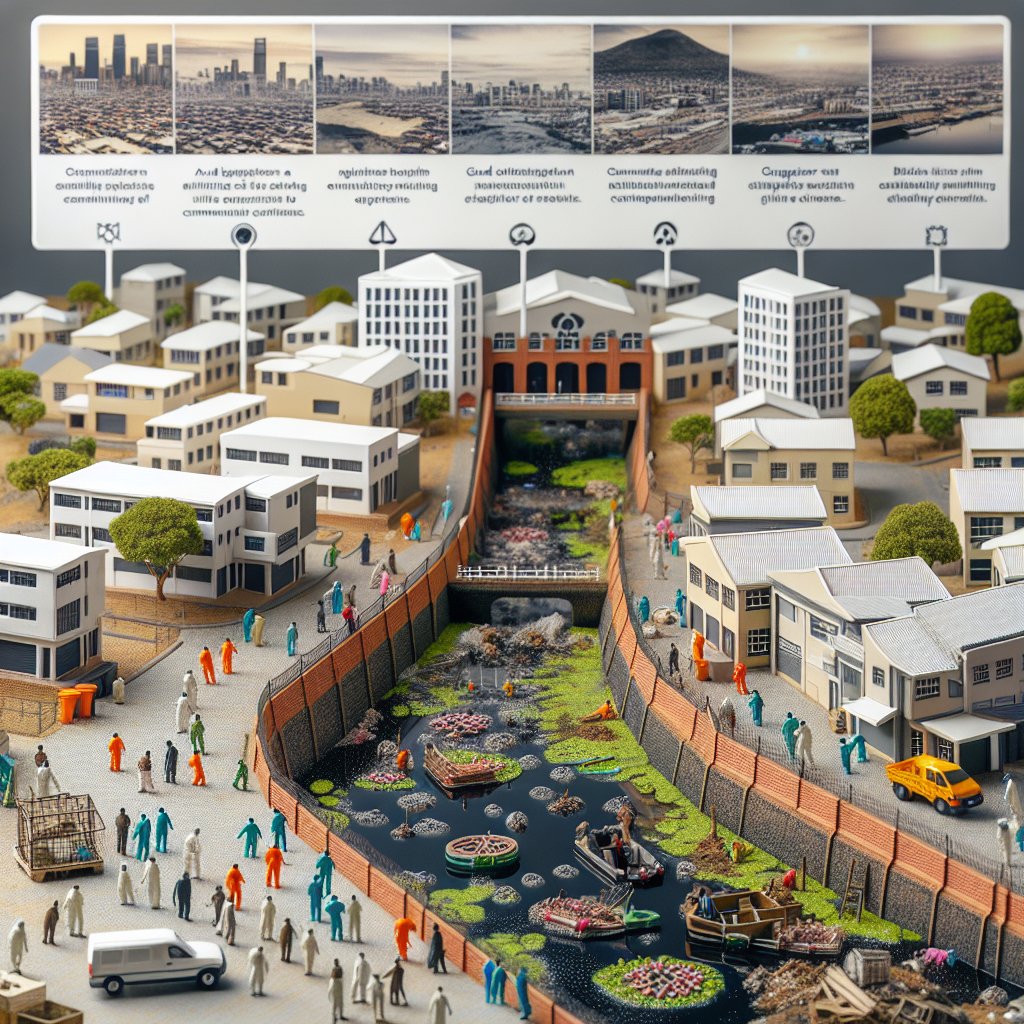Image created by AI
Parkwood Raises Alarm on Canal Crisis, Calls for City of Cape Town’s Action
In the heart of Parkwood, a neighborhood in Cape Town, South Africa, a serious environmental and health crisis looms. The local canal, once a benign waterway, has devolved into a critical issue for residents, catalyzing a strong call for intervention from municipal authorities.
The cause for alarm has been multiplied by the presence of gangsters, who have made the difficult situation worse by attacking city clean-up teams, leading to a full suspension of maintenance efforts. This shocking turn of events has hampered the momentum gained by proactive measures to restore the canal and has raised safety and health concerns for the sanitation workers.
At the epicenter of communal efforts to rally support and actionable solutions is Yasmine Abrahams, the founder of the Jabulani Feeding and Learning Centre. Abrahams has been vocal about the intimidation tactics deployed by gangsters, hindering personnel because they are perceived as outsiders, not part of the Parkwood fabric.
The centre itself has courageously attempted to spearhead the canal's clean-up, but these efforts have been thwarted by a critical shortage of manpower and financial resources. A particular challenge noted by Abrahams is the reluctance of local youth to participate in the cleaning initiatives, in addition to the dearth of male volunteers who are traditionally more involved in such labor-intensive tasks.
Abrahams, cognizant of the imminent Ramadan period, has also raised concerns regarding the negative repercussions that the filthy conditions of the canal might have on the community during this sacred month. The unsanitary conditions are not just an eyesore but pose a real threat to the physical and spiritual well-being of the community that gathers for this significant religious occasion.
With Ramadan on the horizon, the urgency for a resolution grows. Abrahams and the Parkwood community are hoping for a renewed commitment from the City of Cape Town to address this looming crisis promptly. They call for the authorities to not only reinstate the canal cleaning operatives but also to ensure their safety against gang-related threats.
The situation at Parkwood serves as a stark reminder of the complexities that urban communities can encounter in maintaining their environment, especially when unlawful activities impede collective efforts to achieve a clean and healthy living space. The resolution of this issue will require a concerted strategy, bringing together community engagement, enforcement of the law, and robust municipal action.
The story of Parkwood's canal is one that touches on broader themes of urban governance, communal responsibility, and the ongoing battle against criminal elements within society. As Yasmine Abrahams and the residents of Parkwood await a solution, their plight underscores the need for collaborative, decisive action in urban problem-solving, where the stakes involve the health and welfare of a community.










